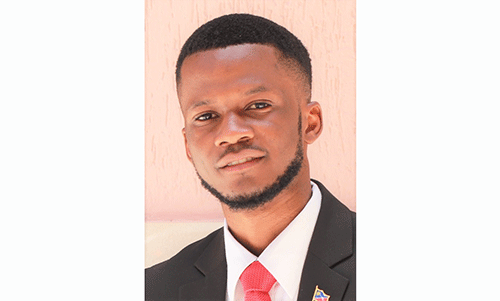Tio Erastus Nakasole
Contemporary issues, such as poverty, are some of the topics that should not be chastised in isolation without any measurement in place.
As far as history is concerned, the genesis of poverty in nations is so hard to be diagnosed, but to propel poverty in future is the right living for humanity.
Indubitably, the root causes of poverty are not only a lack of necessities like water, food, shelter education or healthcare.
Inequalities, including gender or ethnic discrimination, poor governance, conflicts, exploitation, domestic violence and dead aid also constitute poverty.
Poor nation leaders have to accept and differentiate between agreements that are intervening and agreements that are interfering with their national affairs.
The agreement, which seeks to intervene, always breeds positive outcomes.
On the other side of the coin, an agreement that seeks to interfere always has hidden agendas that always have catastrophic implications.
For decades if not centuries, African leaders kept their countries’ faith, businesses, ideologies and policies trapped in the slow plane, building networks around patronage.
Many businesses, for example, that have entered poor nations, such as Africa, bribed their way into local monopolies and contrived to take the resulting high profits out of the continent.
Big government is certainly not a panacea, as some countries have made even the situation worse.
The question is not as to whether the pot is big or small but who is the best cooker.
Holding other variables constant, the size of a nation’s GDP is the main factor that determines its wealth or poverty.
However, in the real world, variables affecting the nation’s economic indicators remains in motion.
A dialectic approach of this piece is to fathom what economic measurements from within and outside poor nations can turnaround poor nations into wealthy nations.
Economics solution to national economic problems
The economic solution, which is the key focus of this writing, encompasses reforms in various aspects of laws, policies and cultural values.
I am a greater believer in the principles of “avoiding paternalism’’.
In other words, do not do things for people that they can do for themselves. The following should be undertaken: limiting the target use of too much foreign aid, use of military intervention to keep peace and conflict, adopting wealthy nations of laws and charters to help catch the tide of Foreign Direct Investment, loosening the belt of trading policies to lower trade barriers and extremely poor nations through the following strategic decision:
Firstly, avoid bad governance and policies: return on investment will never flourish in countries where there is civil unrest or conflicts.
Countries such as South Sudan, Syria, Mali and Mozambique remain hounded and deprived by civil conflicts, yet part of Regional Economic Communities. Economics Blocs such as SADC, SACU, COMESA and IORA have a prerogative role to play in ensuring that conflicts trap is averted at all costs through an effective joint military operation.
Secondly, Break the natural resources trap.
Thirdly, better terms of trade and a better agreement should be put in place in ensuring that each country should focus more on the comparative advantage when it comes to production.
Fourth, restrain multinational corporations, the driving forces shouldn’t be imported all the time and make local firms less powerful. The goal must be to make every person and every company within the nation more productive.
Despite the geographical location of poor nations, being landlocked and resource scarcity in a bad neighbourhood makes development harder. Firstly, improve coastal access.
President Hage Geingob’s inauguration of a dry port in Botswana is a move in the right direction. Rwanda, as the tourism hub destination, is something that should be championed by other countries.
Secondly, poor nations shouldn’t be air-locked or e-locked. Air transport and technology are much more important factors of revenue collection in the digital world.
For the above proposal to work for us and not against us, more has to be done by all the stakeholders and policymakers from vision to implementation.
Taking the above into introspection is of paramount importance to understand the problem as a whole so that the diagnoses can be correct.
Lastly, the transformation from mass poverty to mass prosperity does not require bystanders. It needs complementary action from both sides of the state, using instruments that have not been conventionally part of the development armoury before such as trade policies, security strategy, changes in our laws in relation to the wealthy nation and a new international charter for all.
* Tio Erastus Nakasole is an MBA student at the Namibia University of Science and Technology, a holder of an Honours degree in Economics. Currently serving as the Sales and Service Manager at HiFi Corporation Namibia. The views expressed do not represent those of his employer.
– theoerastus@gmail.com



